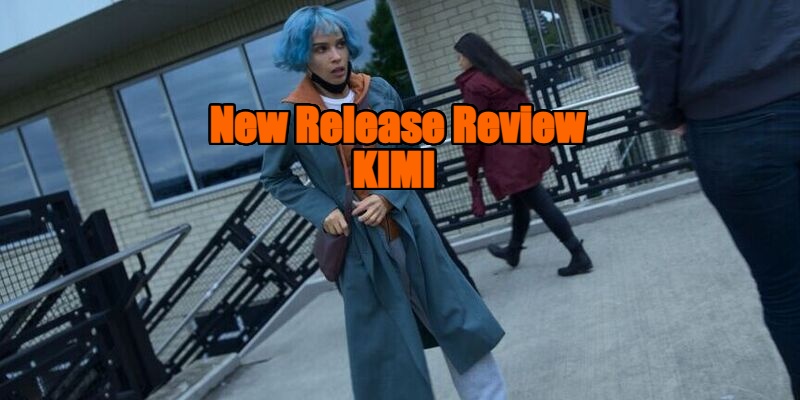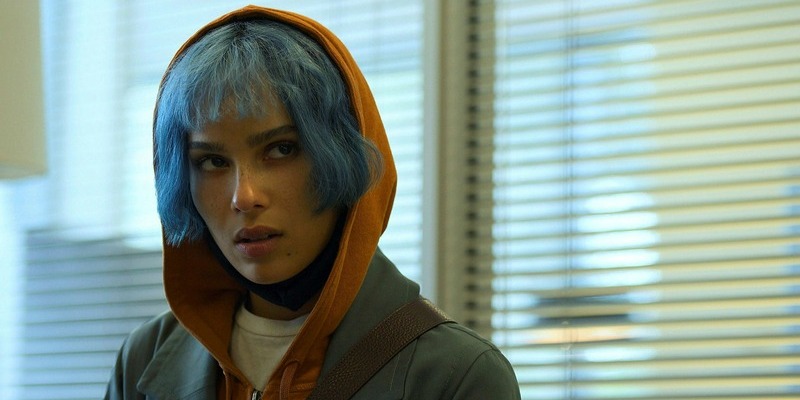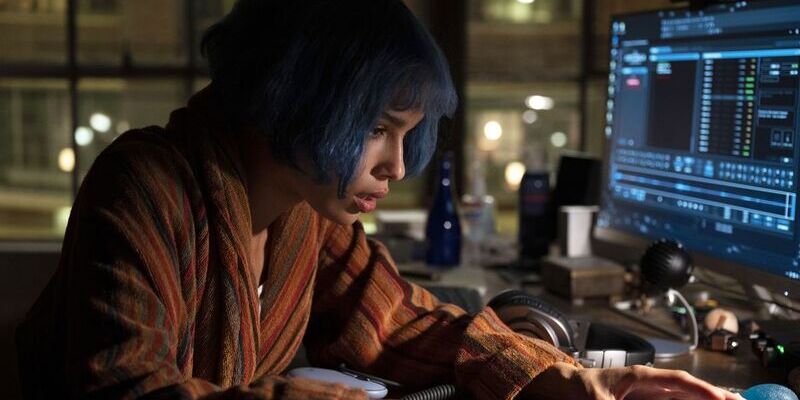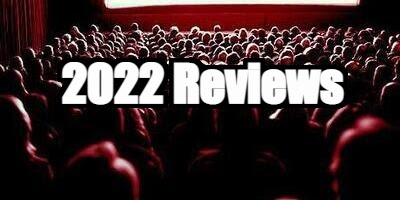
Review by
Eric Hillis
Directed by: Steven Soderbergh
Starring: Zoë Kravitz, Byron Bowers, Rita Wilson, Devin Ratray, Robin Givens

With his latest movie, Kimi, director Steven Soderbergh bites the hand that has been
feeding him in recent years. Soderbergh's last handful of features have
been funded by and released through streaming services, and he's
increasingly used modern technology like the iPhone to enable him to
shoot his films in a fast and efficient manner. It's strange then to see
him helm a film that's so wary of technology, though ultimately
Kimi does seem to suggest that technology isn’t the
problem so much as the people who control it.
The film is named after a device that for all and intents and purposes
is Amazon's Alexa. Amazon's gadget, which allows you to speak commands
and have it perform various functions, has provoked much controversy
around the issue of privacy. I would never have one in my own home
because I've seen Demon Seed, and also because I don’t want some Amazon lackey listening to my
conversations to try and figure out which breakfast cereal I
favour.

Zoe Kravitz plays Angela, one such lackey for Amygdala, the
company that manufactures and controls Kimi. Her job is to listen back
to recorded instructions given to Kimi devices and log any errors in its
software. This is sold to customers as simply a means of ensuring the
product runs smoothly, and if you believe that, well, I've got some NFTs
to sell you.
One day while listening to a recording, Angela believes she overhears a
woman being assaulted. With the aid of a Romanian hacker she gets her
hands on other recordings from the same device and hears what appears to
be the murder of the same woman. When Angela tries to report her
worrying discovery to her superiors, she finds herself running for her
life as she uncovers a conspiracy involving the people who control
Amygdala.

Kimi begins like a modern, pandemic era riff on
Rear Window, with Angela - who suffers from intense agoraphobia due to an
ambiguous incident at a previous employer - refusing to leave her home.
Like Jimmy Stewart, she spends a lot of time observing life from her
window, and she also has a friend with benefits (Byron Bowers)
whom she calls over whenever she's feeling horny. I'm not sure the film
needed the backstory it later reveals as being behind Angela's
agoraphobia, as a large percentage of the world's population have become
similar shut-ins over the past couple of years.
For roughly two thirds of the film, we remain in Angela's apartment,
and it becomes something of a patience tester watching her make a series
of phone and zoom calls while listening to recordings. With
Blow-up and Blow-Out, Antonioni and De Palma found a way to make this sort of thing
instensely cinematic by having their protagonists piece together images,
but Soderbergh and screenwriter David Koepp fail to find a
similar way to make their movie visually interesting.

Things finally heat up in the final act when Angela is forced to
confront her fears and the film harks back to the great conspiracy
thrillers of the 1970s. Technology becomes Angela's enemy as those out
to get her use it to track her movements. Koepp has explored this idea
before with a pair of movies from over 25 years ago. His script for De
Palma's Mission Impossible is very much a techno thriller
in comparison to the all-action sequels that would follow, with Tom
Cruise's Ethan Hunt spending a lot of time tapping away at keyboards.
His directorial debut The Trigger Effect, made the same year, argues that we've become so reliant on technology
that should we lose our access to it, society would crumble.
So where do Soderbergh and Koepp fall on the issue of technology?
There's certainly a lot of justified fear-mongering around privacy
issues, though in a Wait Until Dark inspired climax,
Angela employs her high tech home to level the field against a group of
burly aggressors. I suspect viewers of Kimi will fall into
two camps, those who find the idea of such a device terrifying and those
who marvel at its convenience. In the end, the threat to Angela comes
not from technology but from other people. Tech doesn't harm people, the
people who wield it do, the movie ultimately suggests. Isn't that what
Americans say about guns?


